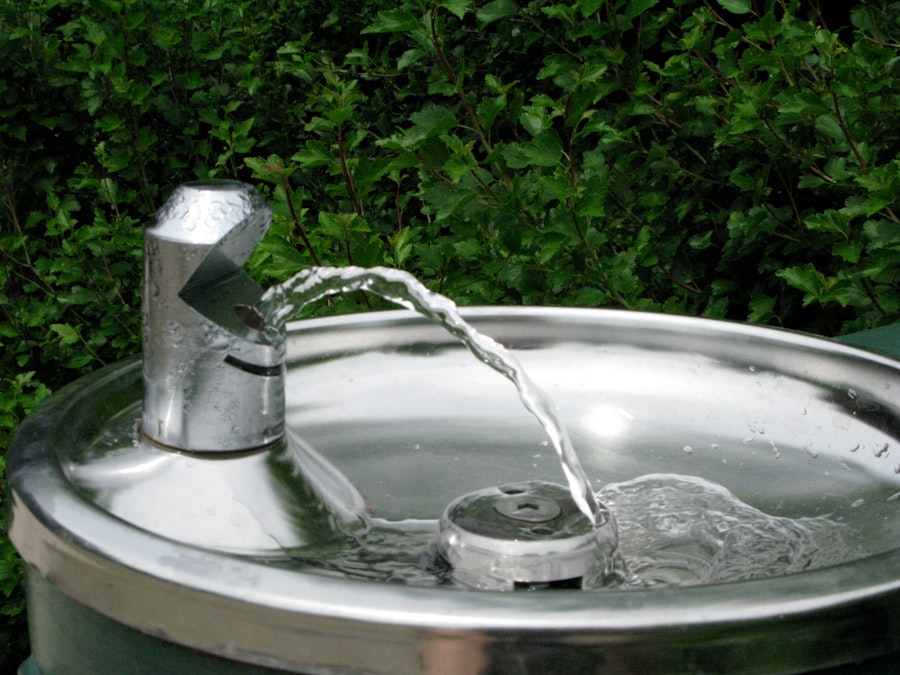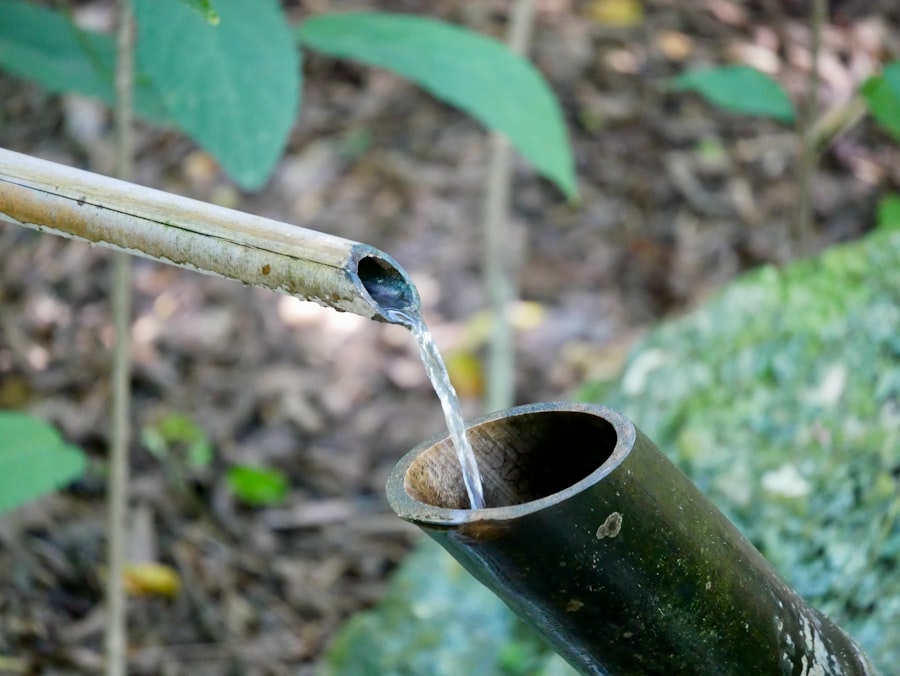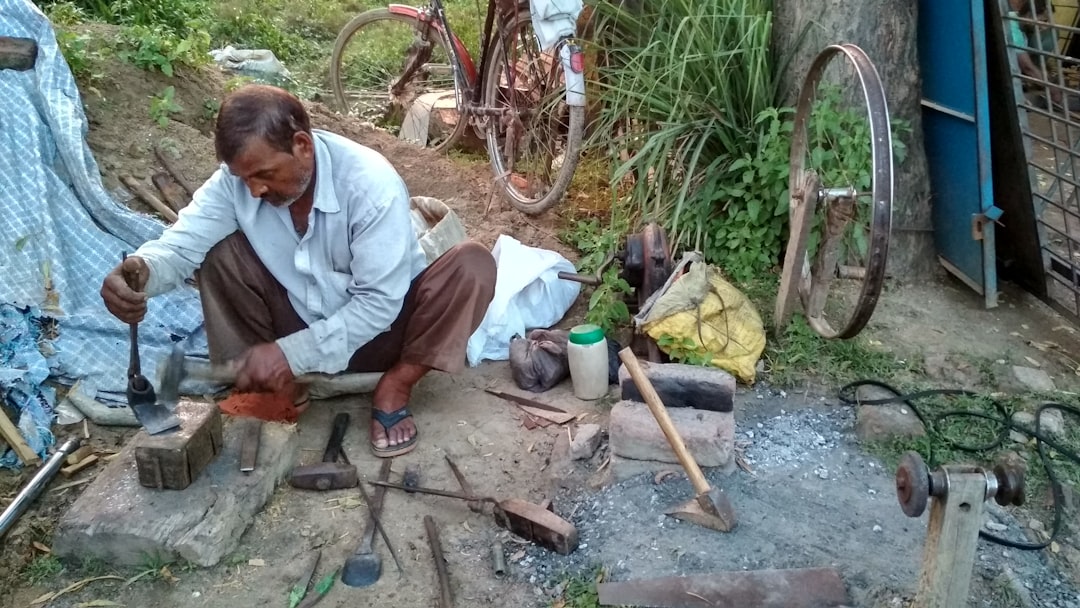Dasani Water, a well-known brand in the bottled water industry, has carved a significant niche for itself since its introduction in 1999. Owned by The Coca-Cola Company, Dasani is marketed as a refreshing and pure source of hydration, appealing to consumers who prioritize convenience and quality. The brand has become synonymous with bottled water, often found in various retail outlets, restaurants, and vending machines across the globe.
Its sleek packaging and consistent branding have contributed to its recognition, making it a staple choice for many individuals seeking a reliable source of hydration. The appeal of Dasani Water extends beyond its branding; it is also rooted in the perception of quality and safety that consumers associate with the Coca-Cola name. As health consciousness rises among the public, bottled water has emerged as a preferred alternative to sugary beverages.
Dasani has positioned itself as a leader in this market, emphasizing its commitment to providing clean and safe drinking water. This article delves into the various aspects of Dasani Water, exploring its source, purification processes, and the environmental considerations surrounding its production and distribution.
Key Takeaways
- Dasani water undergoes a rigorous purification and filtration process to ensure safety and taste.
- The water source is carefully selected and treated using reverse osmosis technology.
- Mineralization and pH balancing are added to enhance flavor and maintain water quality.
- Strict quality control measures are implemented throughout packaging and distribution.
- Environmental impact considerations are part of Dasani’s production and sustainability efforts.
The Source of Dasani Water
Dasani Water is sourced from municipal water supplies, which are then subjected to rigorous purification processes to ensure safety and quality. The brand’s commitment to transparency is evident in its labeling, which often indicates that the water comes from local sources. This approach not only supports local water systems but also allows for a consistent supply chain that can meet consumer demand effectively.
By utilizing municipal water, Dasani can maintain a steady flow of product while adhering to strict regulatory standards set by health authorities. The sourcing strategy also reflects a broader trend in the bottled water industry, where many brands are increasingly turning to municipal supplies rather than natural springs. This shift is driven by both economic considerations and environmental awareness.
By tapping into existing water infrastructure, Dasani minimizes the ecological footprint associated with extracting water from natural sources. This decision aligns with the growing consumer preference for brands that demonstrate sustainability and responsibility in their operations.
The Importance of Purification

Purification is a critical step in the production of Dasani Water, ensuring that the final product is free from contaminants and safe for consumption. The process begins with the collection of municipal water, which may contain various impurities such as chlorine, sediment, and microorganisms. To address these concerns, Dasani employs advanced purification techniques that remove harmful substances while retaining essential minerals that contribute to taste and health.
The importance of purification cannot be overstated, especially in an era where consumers are increasingly aware of the quality of their drinking water. With concerns about pollutants and contaminants on the rise, brands like Dasani must prioritize rigorous testing and purification methods to build trust with their customers. By ensuring that their water meets or exceeds safety standards, Dasani reinforces its reputation as a reliable choice for hydration.
Filtration Process
| Parameter | Unit | Typical Range | Description |
|---|---|---|---|
| Flow Rate | m³/h | 10 – 500 | Volume of fluid passing through the filter per hour |
| Filtration Efficiency | % | 85 – 99.9 | Percentage of particles removed from the fluid |
| Particle Size Removal | Microns (µm) | 0.1 – 100 | Size of particles effectively removed by the filter |
| Pressure Drop | kPa | 5 – 50 | Pressure loss across the filter during operation |
| Filter Media Life | Hours | 100 – 2000 | Operational time before filter media replacement is needed |
| Backwash Frequency | Cycles/day | 1 – 10 | Number of cleaning cycles per day for reusable filters |
The filtration process utilized by Dasani Water is designed to eliminate impurities while preserving the water’s natural qualities. Initially, the water undergoes a series of physical filtration steps that remove larger particles and sediments. This stage is crucial for ensuring clarity and cleanliness before the water moves on to more advanced purification methods.
The use of high-quality filters allows Dasani to maintain a consistent standard across its products. Following the initial filtration, Dasani employs additional purification techniques such as activated carbon filtration. This method effectively removes chlorine and other organic compounds that can affect taste and odor.
By utilizing activated carbon, Dasani enhances the overall sensory experience of drinking its water, making it more appealing to consumers. The meticulous attention to detail in the filtration process underscores Dasani’s commitment to delivering a product that meets high standards of quality.
Reverse Osmosis
One of the key technologies employed in the purification of Dasani Water is reverse osmosis. This advanced filtration method involves forcing water through a semi-permeable membrane that allows only water molecules to pass while blocking larger contaminants such as salts, bacteria, and other impurities. The result is exceptionally pure water that serves as the foundation for Dasani’s product.
Reverse osmosis is particularly effective in removing dissolved solids and other unwanted substances from water. This technology not only enhances the purity of Dasani Water but also contributes to its crisp taste. By investing in state-of-the-art reverse osmosis systems, Dasani ensures that its water meets stringent safety standards while providing consumers with a refreshing drinking experience.
The use of this technology reflects the brand’s dedication to innovation and quality in an increasingly competitive market.
Mineralization

After undergoing extensive purification processes, Dasani Water is mineralized to enhance its flavor profile and provide essential nutrients. The addition of minerals such as magnesium sulfate, potassium chloride, and calcium chloride not only improves taste but also contributes to the overall health benefits associated with drinking water.
The decision to mineralize Dasani Water aligns with consumer preferences for beverages that offer more than just hydration. Many individuals seek out products that provide additional health benefits, and mineralized water fits this demand perfectly. By incorporating essential minerals into its formulation, Dasani not only enhances its product’s appeal but also positions itself as a health-conscious choice for consumers looking to maintain their well-being.
pH Balancing
Maintaining an optimal pH level is another crucial aspect of Dasani Water’s production process. The brand aims for a balanced pH level that falls within the range of 6.0 to 7.0, which is considered neutral or slightly acidic. This balance is essential for ensuring that the water tastes fresh and clean while also being gentle on the palate.
pH balancing is particularly important in bottled water because it can influence both flavor and stability. Water that is too acidic or alkaline can have an unpleasant taste and may even affect how well it pairs with food or other beverages. By carefully monitoring and adjusting the pH levels during production, Dasani ensures that its water remains enjoyable for consumers while also meeting safety standards.
Quality Control
Quality control is an integral part of Dasani Water’s production process, encompassing every stage from sourcing to bottling. The brand employs rigorous testing protocols to ensure that each batch of water meets its high standards for purity and safety. This commitment to quality extends beyond mere compliance with regulations; it reflects Dasani’s dedication to providing consumers with a product they can trust.
Regular testing for contaminants, taste, and pH levels allows Dasani to maintain consistency across its product line. Additionally, the brand invests in advanced laboratory equipment and skilled personnel who are trained to identify any potential issues before they reach consumers. This proactive approach to quality control not only safeguards public health but also reinforces consumer confidence in the brand.
Packaging and Distribution
The packaging of Dasani Water plays a significant role in its market presence and consumer appeal. The brand utilizes lightweight plastic bottles designed for convenience while also considering environmental factors. The bottles are made from recyclable materials, reflecting Dasani’s commitment to sustainability in an industry often criticized for its environmental impact.
Distribution channels for Dasani Water are extensive, ensuring that consumers can easily access the product wherever they are. From grocery stores to convenience shops and restaurants, Dasani has established a robust distribution network that caters to diverse consumer needs. This widespread availability contributes to the brand’s popularity and reinforces its position as a go-to choice for bottled water.
Environmental Impact
The environmental impact of bottled water production has become a pressing concern in recent years, prompting brands like Dasani to take steps toward sustainability.
In response, Dasani has implemented initiatives aimed at reducing its ecological footprint.
One notable effort includes the use of recycled materials in packaging and ongoing research into more sustainable alternatives for bottle production. Additionally, Dasani has engaged in community programs focused on water conservation and education about responsible consumption practices. By addressing these environmental challenges head-on, Dasani aims to balance consumer demand with a commitment to protecting natural resources.
The Benefits of Dasani Water
In conclusion, Dasani Water stands out as a leading choice in the bottled water market due to its rigorous purification processes, commitment to quality control, and focus on sustainability. From its municipal sourcing to advanced filtration techniques like reverse osmosis, every step in the production process is designed to deliver clean and refreshing hydration to consumers. The careful mineralization and pH balancing further enhance the product’s appeal by providing essential nutrients while ensuring an enjoyable taste.
As consumers become increasingly health-conscious and environmentally aware, brands like Dasani must continue evolving to meet these demands responsibly. By prioritizing quality, sustainability, and transparency in its operations, Dasani Water not only satisfies consumer needs but also contributes positively to public health and environmental stewardship. Ultimately, choosing Dasani Water means opting for a product that embodies both convenience and quality—an essential combination for today’s discerning consumers seeking hydration solutions.
Dasani water undergoes a rigorous purification process that includes reverse osmosis and mineralization to ensure its quality and taste. For more insights into water purification methods and their significance, you can check out this related article on the topic at Hey Did You Know This. This resource provides a deeper understanding of various water treatment techniques and their impact on health and safety.
WATCH THIS! The $400 Billion Water Lie: Why Bottled Water Is a Scam
FAQs
What is the Dasani water purification process?
The Dasani water purification process involves multiple steps including reverse osmosis, filtration, and the addition of minerals to enhance taste. This ensures the water is clean, safe, and has a consistent flavor.
How does reverse osmosis work in Dasani’s purification?
Reverse osmosis is a filtration method where water is forced through a semi-permeable membrane that removes impurities, contaminants, and dissolved solids, resulting in purified water.
Are minerals added back to Dasani water after purification?
Yes, after the purification process, Dasani adds a blend of minerals such as magnesium sulfate, potassium chloride, and salt to improve the taste and provide a consistent flavor profile.
Is Dasani water sourced from natural springs?
No, Dasani water is sourced from local municipal water supplies and then purified through their multi-step process to ensure quality and safety.
Does the Dasani purification process remove all contaminants?
The process is designed to remove most contaminants, including bacteria, viruses, and chemical impurities, making the water safe for consumption according to regulatory standards.
Is the Dasani water purification process environmentally friendly?
While the purification process itself is effective, the environmental impact depends on factors such as water sourcing, energy use, and plastic bottle production. Dasani has initiatives aimed at sustainability, including using recycled materials for bottles.
How does Dasani ensure the safety of its purified water?
Dasani follows strict quality control measures, including regular testing and adherence to FDA and EPA standards, to ensure the water is safe and meets all regulatory requirements.
Can the Dasani purification process remove fluoride?
Yes, reverse osmosis used in the Dasani purification process can remove fluoride along with other dissolved solids and contaminants.
